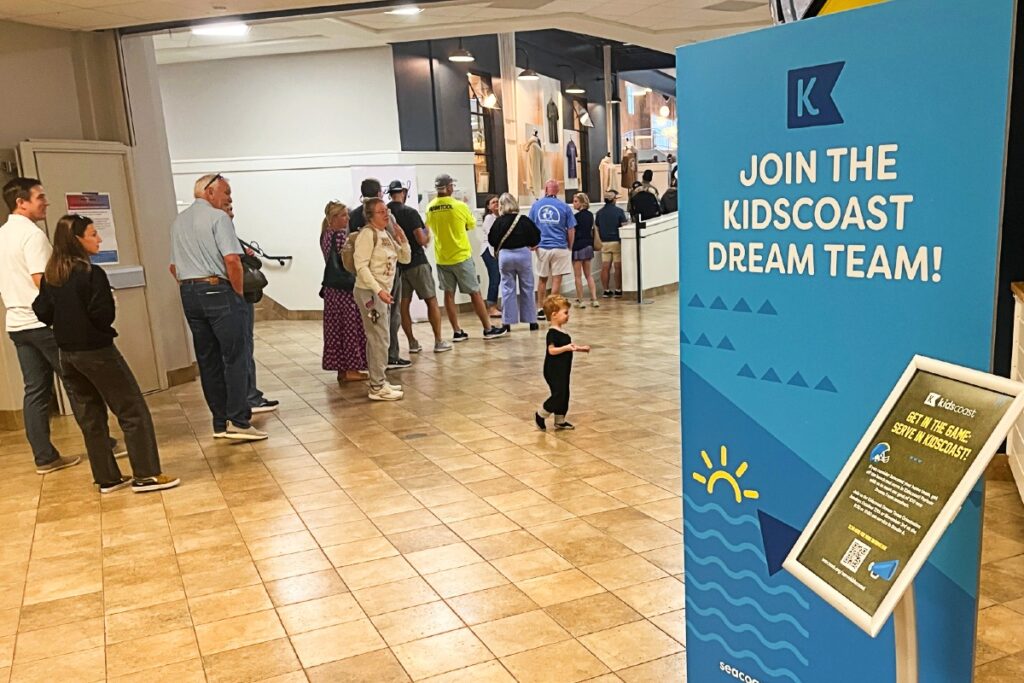
By the Rev. Jeremy Rutledge | Like a growing number of Americans, I voted early in this year’s presidential election. I stood in an hour-long line on a weekday afternoon, happy to see so many others exercising their right to vote.

According to the South Carolina Election Commission, early voting has never been more popular. More than 1.5 million South Carolinians cast ballots before November 5. Early voting has now become an essential part of the electoral process; it provides time and space for more of us to participate.
When I voted early, I was impressed with the careful planning and organization of the space. Volunteers and election workers were helpful and kind. The process was seamless from start to finish. There was only one problem: the site for early voting in my area was an evangelical church.
At first blush, this might not seem to be a problem at all. We needed ample parking and a large building, which the church provided. Yet the longer I stood in line and the closer I got to the voting booth, the more uncomfortable I became.
On our way to vote, we moved through the church foyer. Signs advertised various ministries while QR codes invited us to learn more. The line moved slowly past a bookstore selling Bibles and T-shirts with Christian slogans. Finally, we stood beneath a great cross as we waited to present our identification to vote. It all felt more religious than civic.
I wondered as I stood in line, and I have wondered since, what happened to our cherished tradition of separation of church and state? Why was I – a minister – subjected to so many religious messages while I was simply trying to vote? I thought of the rich multicultural tapestry of the country, including beloved friends of many faiths and philosophies. I tried to imagine how a Muslim or Jew might feel in the line. What would a Buddhist think, a Hindu or a humanist?
I don’t know how the decision was made to choose churches as early voting sites in Charleston County, but I do know that it belies a lack of respect for our many cultures and traditions. In a multicultural democracy, we should vote in community centers, civic halls and gymnasiums – all of which have great parking – not sectarian religious spaces. This can be done if we find the will and, more importantly, the ethic to do it.
The ethic behind the separation of church and state is an ethic of ordinary respect. Rather than impose a single tradition or entangle it with government, we create space for every person to follow their own conscience. This includes our religious neighbors, our non-religious neighbors and everyone in between. It also leads to an extraordinarily vibrant cultural landscape. I’m grateful to live in a country where those who are dearest to me are Muslims, Jews, Buddhists, Hindus and humanists, each free to practice their faiths and philosophies as I am free to practice mine. Yet this freedom needs to be safeguarded.
Some of our elected officials now deny our tradition of keeping church and state separate. They have brought religion, specifically evangelical Christianity, into the school board, the public library, the city council and the state legislature. We can see and hear in these efforts a profound lack of respect for others and a menacing form of intolerance. We may remember that the president-elect himself once stood on the deck of the Yorktown in Charleston Harbor and called for a ban on Muslim people.
It all leads me back to the idea that multicultural democracy isn’t something we are meant to simply talk about. It’s something we are meant to practice. A good start would be moving our early voting to places that are respectful of all.
I know this can be done because years ago, living in Texas, I voted early at a community center. There were no crosses on the wall, only children’s artwork.
The Rev. Jeremy Rutledge is senior pastor at Circular Congregational Church in Charleston.



Everyone has their opinion, I respectfully disagree with you. If you don’t want to vote in a church, go to one of the other early voting locations. We voted in a church, not of our denomination. Felt nothing like you describe but then I’m quite secure in my faith.
Our voting precinct here in Beaufort is at an evangelical church, but the voting takes place in a community meeting space that is devoid of religious symbology. I’ll bet the place where the Reverand voted has a similar place that could be used, and the Board of Elections should have insisted on using that venue.
I respect the author’s sentiments, but i did not experience the feeling. I do remember voting at the North Charleston Coliseum one year though
Sometimes it is the most convenient location for voting. A location needs be accessible to the disabled community.